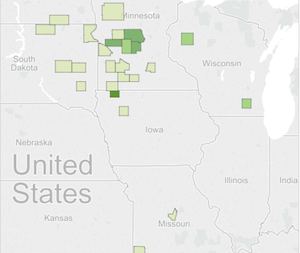For little girls, conversation is a joyful rehearsal for adulthood.
For little boys, conversation is a headlock, a sneak attack.
Sometimes when I try to start a conversation with my sons, ages 4 and 9, all I get in return are mumbles, grunts and an occasional diversionary burp. My boys want to talk to me only when they need more snack food.
Just the other night, my older son poked his head through a bedroom door to ask: "Daddy, is cheese a fruit?"
"No, Baby Einstein, cheese is not a fruit," I replied.
He giggled and ran away, a clue that he was just test-driving his sense of humor.
I read once that the way to get boys to talk is to use a head fake - namely, pretend to be doing something else. For boys, conversation with an adult is OK if it's a part of an adventure such as bowling or traveling to a sports event.
My older son and I talked for several hours last Sunday on our way to and from a soccer game in Oak Ridge, Tenn. We covered everything from the Manhattan Project to patent law. He was fascinated that scientists had secretly gathered in Oak Ridge during World War II to develop enriched uranium to make the first atomic bombs.
"Are any of those scientists still here?" he asked as he strapped on his shin guards. I immediately realized this was code for: "Is there any chance the soccer team we are playing today will have these atomic bombs?"
We talked about the inventor of Silly Bandz, those ubiquitous rubber bands that hold their shape. Boys fantasize about making a bundle of money with an invention like factory workers daydream about Powerball.
Once we reached his conversational comfort zone, my older son began to ask questions with more substance.
"Daddy, why is it after every soccer game there's usually one kid who says to me, 'Horrible game,' and calls me 'stupid'?" he said.
I fumed and fumbled and finally suggested he tell those mean kids to "Look at the scoreboard."
"What does 'look at the scoreboard' mean?" he said.
"Nothing," I said, realizing there are no scoreboards at most youth soccer games. "Don't say that scoreboard thing. Daddy shouldn't have said that."
Talking to your kids means being willing to occasionally expose your own shallowness.
Perhaps sensing that daddy and his big brother had spent quality time together the day before, my 4-year-old son met me after work on Monday as thunder rumbled in the distance.
"Daddy, do you want to sit on the porch with me today the way we always do when it rains?" he said.
He dragged his tiny rocking chair to the porch and swaddled himself in a Tennessee Titans blanket. We rocked and watched cars go by and counted the seconds between the lightning and the thunder.
We practiced his "numbers" - "Seven plus seven is 14." - and he recited the books of the Old Testament - "Noviticus, Numbers, Deuterongamy."
After about 10 minutes, the time it takes to eat a Mayfield popsicle, he'd had enough talk.
That night the boys fell asleep side-by-side on our king-size bed. I leaned over, pulled up the covers and gave them both a kiss on the cheek.
I remember that a person with grown children once told me that he would a give month's salary to roll back the clock to experience "just one more day" when his children were young.
In real-time parenting, the days, weeks and months often charge by in a monotonous blur. Other times, though, you are completely, 100 percent aware of the priceless present. And, frankly, it takes your breath away.
Contact Mark Kennedy at mkennedy@timesfreepress.com or 423-757-6645. Follow him on Twitter @TFPCOLUMNIST.
